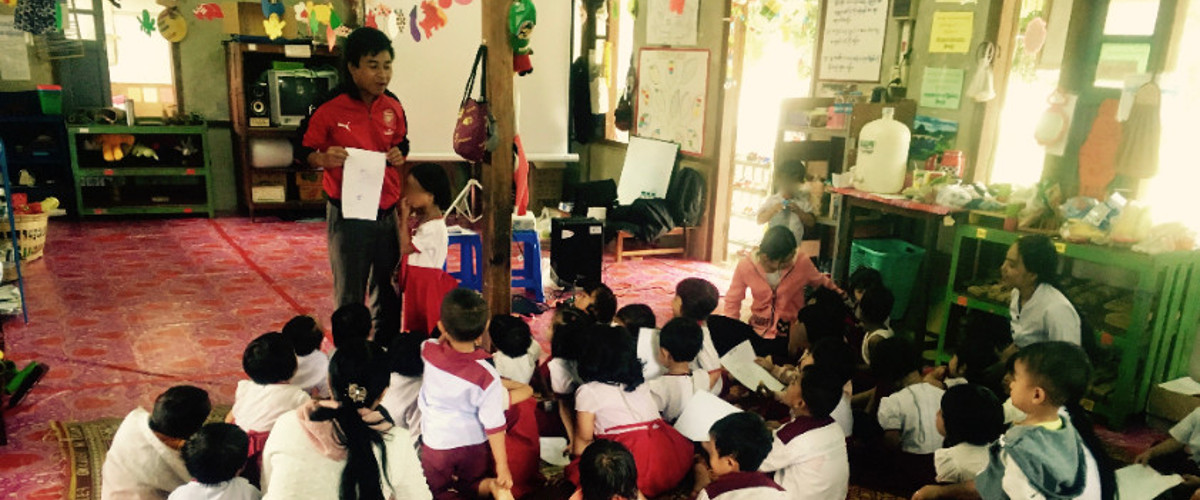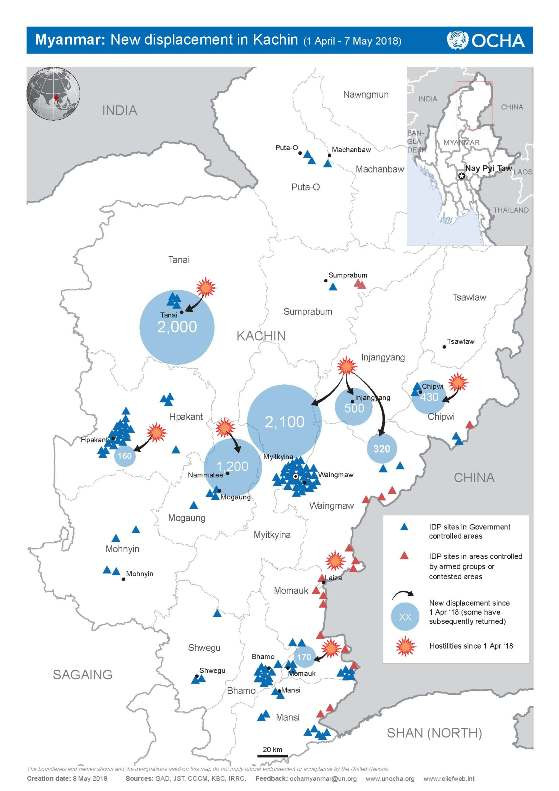 Students in community schools and internally displaced persons (IDPs) in refugee camps in Myanmar are learning about peace building through workshops run by the Jesuit Refugee Service (JRS). JRS launched the Peace Education Project in November last year to address the challenges faced by potential host communities, IDPs and returning refugees by promoting peaceful coexistence.
Students in community schools and internally displaced persons (IDPs) in refugee camps in Myanmar are learning about peace building through workshops run by the Jesuit Refugee Service (JRS). JRS launched the Peace Education Project in November last year to address the challenges faced by potential host communities, IDPs and returning refugees by promoting peaceful coexistence.
Fr Aloysius Bi SJ undertook his first experience as a peace education teacher in a nursery school in Loikaw, and learnt from it the importance of communication in peace building. “To adjust oneself to the world of others and to speak a language which others can understand is a way to start building peace,” he shared. Fr Bi was accompanied by Mariano, JRS Education Officer in Loikaw, who helped with translation.
“I have conducted numerous seminars, but the one at a nursery school in Loikow was certainly the most challenging,” said Fr Bi. “The kids were between two and four years old. Given their ages, I tried games that were not conceptual, but related to their life experiences, such as drawing, learning from animals and sharing chocolate. Through these games, they personally experienced different dynamics of peace and violence. Their willingness to share resulted in peace and harmony. Peace and harmony were greatly encouraged and cultivated during the session. This is a crucial goal of peace education.”

Myanmar has been a battleground for decades. A long civil war has displaced more than 640,000 people.
In many parts of Kachin State, the conflict between the Burmese Army and the Kachin Independence Army has intensified since the beginning of the year. Due to heavy mortar shelling and airstrikes by the Burmese Army, thousands of civilians, mostly women and children, have fled their villages. The United Nations Office for the Coordination of Humanitarian Affairs (OCHA) reports that in April alone, more than 6,800 people were displaced. There are now more than 100,000 IDPs living in camps throughout Kachin State.
In Kayah State, the war has internally displaced more than 34,000 persons. About 12,100 refugees remain in two camps in the Mae Hong Son province of Thailand bordering Myanmar.
The country has limited resources and services, and refugees returning from Thailand may accentuate scarcity in underserved communities and exacerbate intra-community conflicts. In Kayah State, remote areas have very limited international presence and rely largely on local churches and national non-governmental organisations for humanitarian assistance.
Within this context, JRS supports educational empowerment and builds peace and reconciliation across ethnic, tribal and religious communities. It aims to promote common understanding and mutual trust between potential host communities in Kayah State and returning IDPs and refugees.
In 2017, JRS facilitated several sessions about peace building for teachers and other JRS key partners. These sessions focussed on understanding levels of conflict and exploring ways of peaceful living within the family and larger community. This was accomplished through activities that included focus group discussion, brainstorming, storytelling, games and role-plays.
Since most participants had direct experience living in and working with the communities that have been experiencing conflict for decades, they learnt from one another through the activities which included discussions about conflicts related to religious and ethnic minorities, schools and communities, and land issues. Sharing their own real stories was particularly powerful.
Out of these was born the Peace Education Project.
JRS conducts peace education training workshop in Kayah and Kachin States at all levels: adults, adolescents and children. This year, training workshops are planned at four IDP camps in Myitkyina in Kachin State and at two nursery schools in Loikaw in Kayah State. [JRS]

